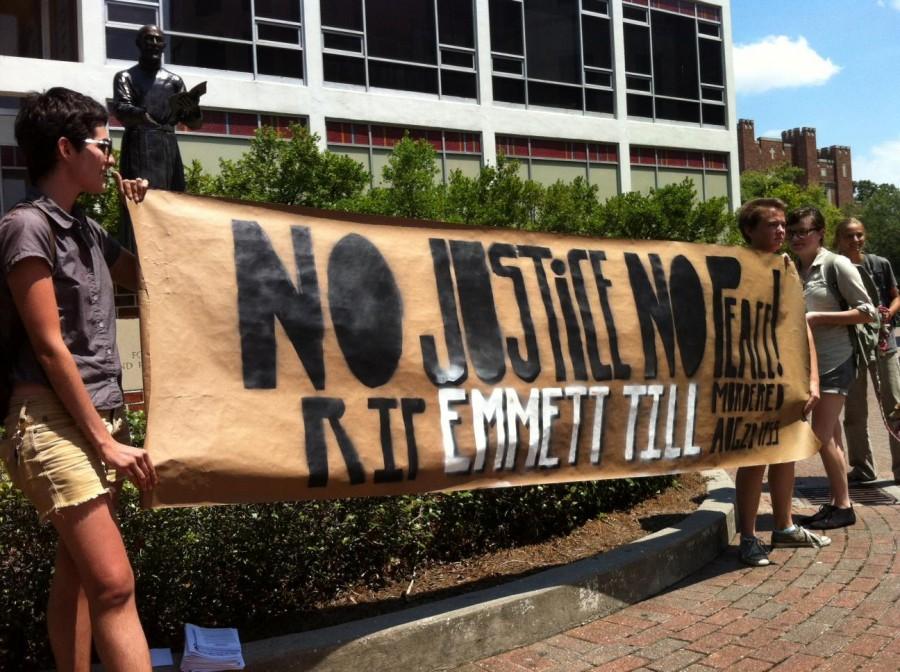Loyola students honor Emmett Till
Students commemorate the anniversary of Emmett Till’s death. The demonstration was held on Tuesday, Aug. 27 in front of St. Ignatius’s statue.
August 28, 2013
Nearly 60 years after a young black boy’s murder helped to spark the Civil Rights Movement, Loyola students believe that Emmett Till’s story still has the potential to motivate changes in personal and societal perspectives.
A group of students calling themselves the St. Ignatius Loyola Society for the Abolition of Archism gathered in front of Monroe Library on Tuesday, Aug. 27 to commemorate the anniversary of Emmett Till’s death. Till was only 14-years-old when he was brutally beaten and murdered after allegedly flirting with a white woman.
In addition to honoring Till, the organization members hoped to “raise awareness and to inspire dialogue about injustice in the United States and on campus,” Katherine Seitel, English senior and one of the organizers of the event, said.
“The death of Emmett Till was supposed to mark a turning point in history books,” history sophomore Brendan Aman said to the crowd of onlookers. “We are taught to believe that his death inspired significant change in this country.”
While Aman encouraged students to become more aware of ever-present social issues, Seitel, environmental studies junior Kara Stafford and environmental studies junior Rebecca Walker held up a banner declaring, “No Justice, No Peace.”
“This society fueled by capitalism, patriarchy, racism and colonization completely marginalizes and alienates people from themselves and each other,” Aman said. “Society’s commodities do not allow us to talk about social issues and white privilege.”
Stafford said that the discussion of these issues was not a means to complain about unfairness, but to be able to look and see imperfection so that change can be initiated. She said that students should take advantage of the mixes of race and class found on college campuses.
“New Orleans is still largely segregated, and people can get complacent. We’re in a college. Students have an opportunity to correct social injustice,” Stafford said.
Aman urged students not to remain ignorant to the problems both in the New Orleans area and on a larger scale.
“We like to believe that none of these things happen,” he said. “We like to believe that we can continue to live our lives neutral to the ways of the world, and that ‘this is just the way things are.’ This is the route of passivity, of negligence, of our complicit consent for a social system that is built on hate, racism, misogyny, and the almighty dollar.”
Aman said that in light of cases such as Till’s and, more recently, the case of Trayvon Martin,”It’s time to wake up and look at the world. It’s not the white picket fence American dream we are supposed to believe in,” Aman said.







